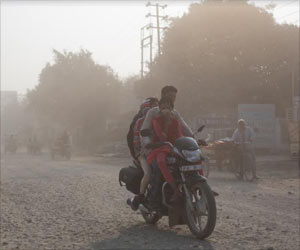N95 masks and air purifiers prove ineffective in Delhi, hospitals see a huge surge in respiratory cases because of the smog

‘There is an absolute need to avoid the hotspots of air pollution, children and elderly can avoid going out, advises Randeep Guleria, AIIMS Director’





Addressing a press conference here, Guleria also compared the situation with the Great Smog of London in 1952, which is estimated to have killed nearly 4,000 people within a week. Calling the current situation of dense smog a "silent killer", he said that while there was a surge in sale of anti-pollution masks and air purifiers, they were not very useful.
"We all need to understand that N95 masks and air purifiers may not provide full-time protection, and are not completely effective," said the renowned pulmonologist.
He called for more detailed studies to support the efficacy of air purifiers and N95 masks.
Asked what the people should do to tackle the smog, Guleria told : "It's better to stay indoor and not go out.
Advertisement
He said there was a 20 per cent surge in respiratory disease patients at the OPDs of the All India Institute of Medical Sciences (AIIMS).
Advertisement
The levels of pollution are so high that the pollutants go to the respiratory tracts and causes inflammation, and later spill over and reach the blood, he said.
"This leads to narrowing of blood arteries causing heart attacks."
Terming the current smog a result low velocity and dip in temperature, Guleria said that similar situation would be witnessed usually during the winters.
"The environment that we have here in India favours the pollution level to stay at the ground level.
Source-IANS











